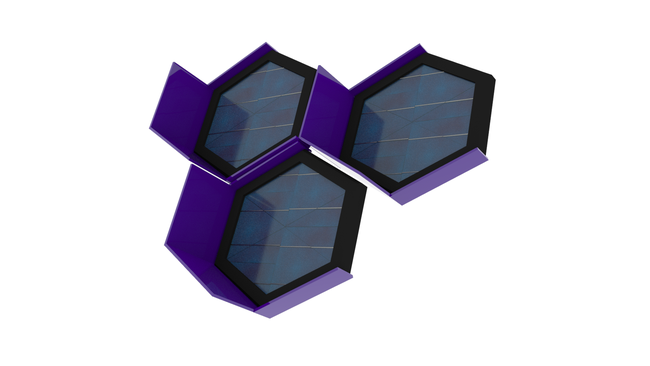It's no secret that residential solar has several barriers to widespread adoption. despite many advancements in cost per watt, the perception is that systems are too much of a commitment.
From the point of view of electrical utilities, while net metering is still widely supported in the US, our electrical grid was clearly not designed with full-scale decentralization in mind.
As a potential solution to these issues, we propose an all-in-one, modular "internet of things" approach.
Not only would this drastically simplify solar energy setup for the end consumer, but it makes it a lot easier to reason about.
Meanwhile, by being connected to a centralized server, disparate clusters of these units could collaborate to balance load across the grid, juggling power back and forth until it is ultimately sold during high demand hours.
Finally, the hexagonal design could allow a cluster of 3 or more units to continue operation in the event of one individual unit’s failure. The cluster would detect a unit’s failure and automatically send you a replacement with instructions on how to return the failed unit for recycling.
We believe that meeting this combination of requirements would in fact produce a product capable of putting a solar panel in every household - saving millions of tons of carbon and billions of dollars a year for our customers.
